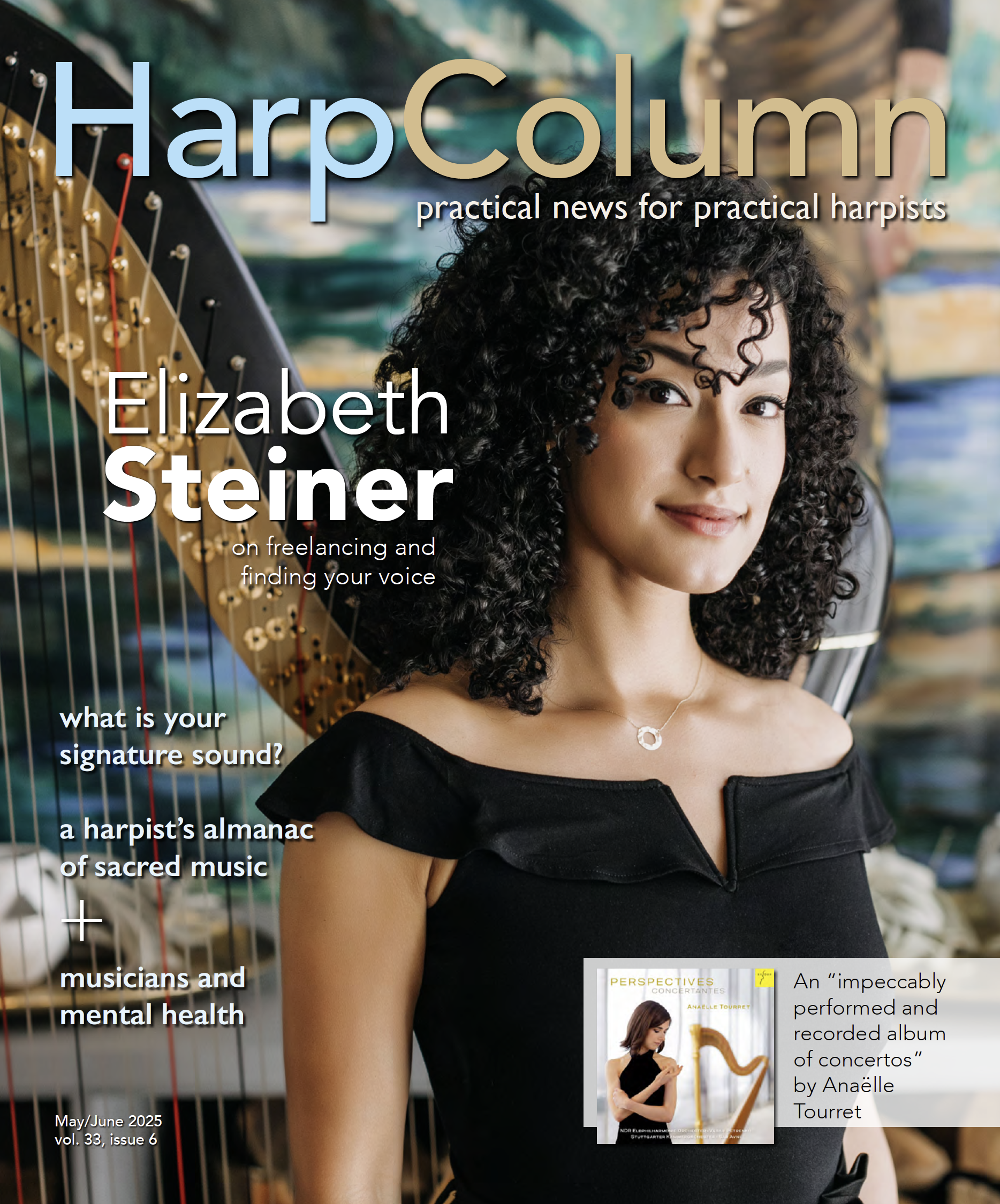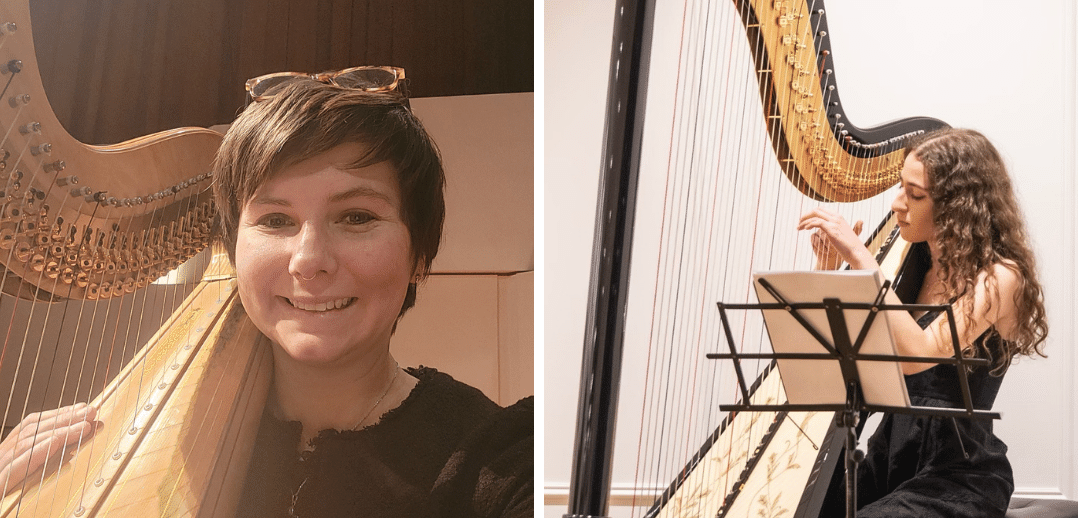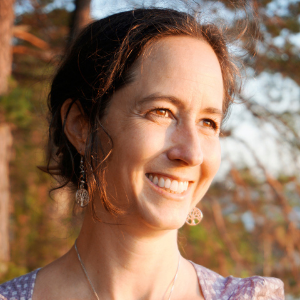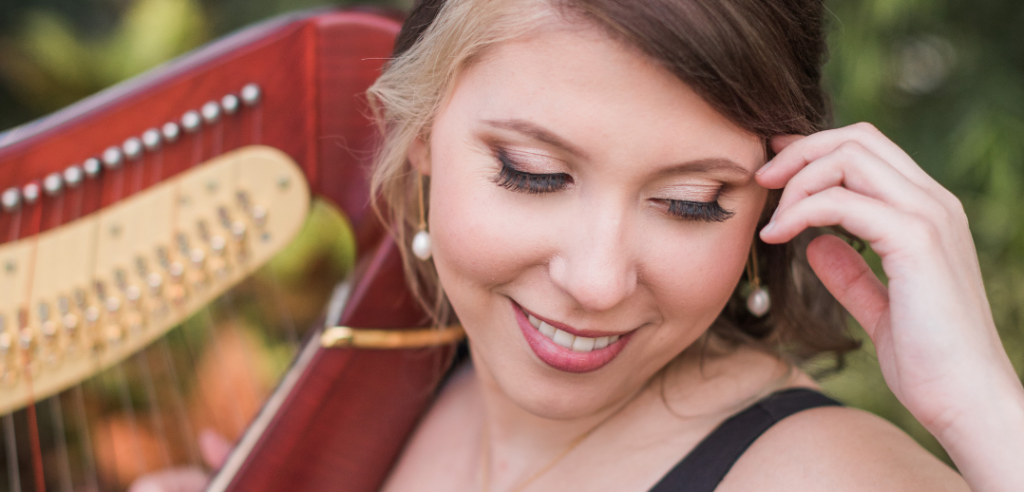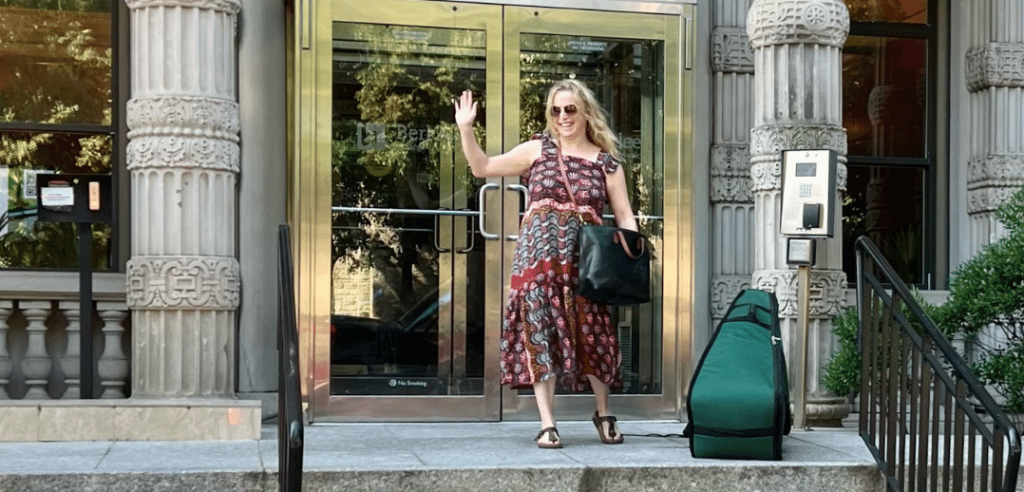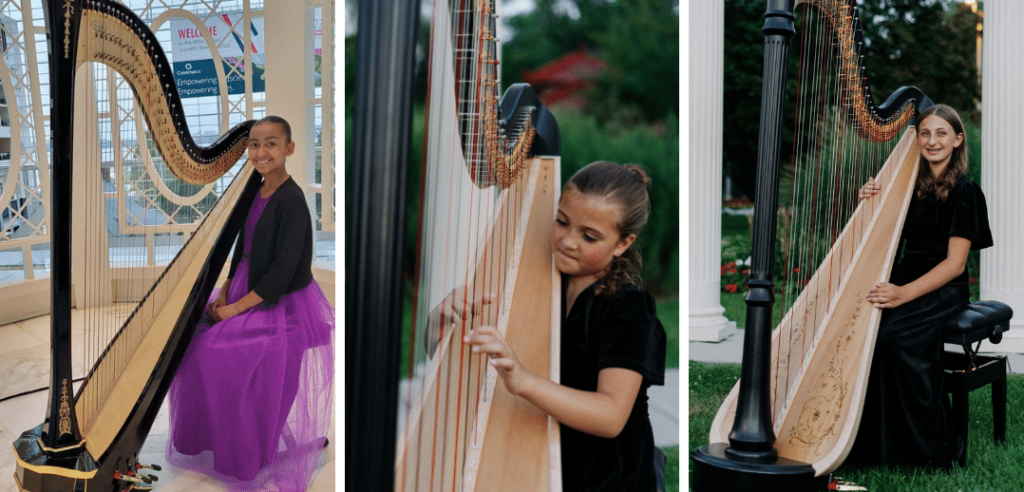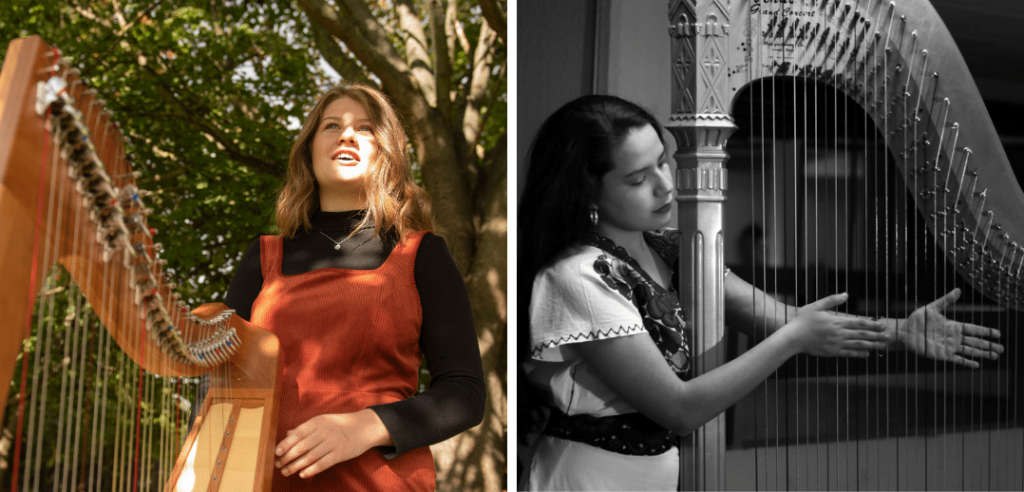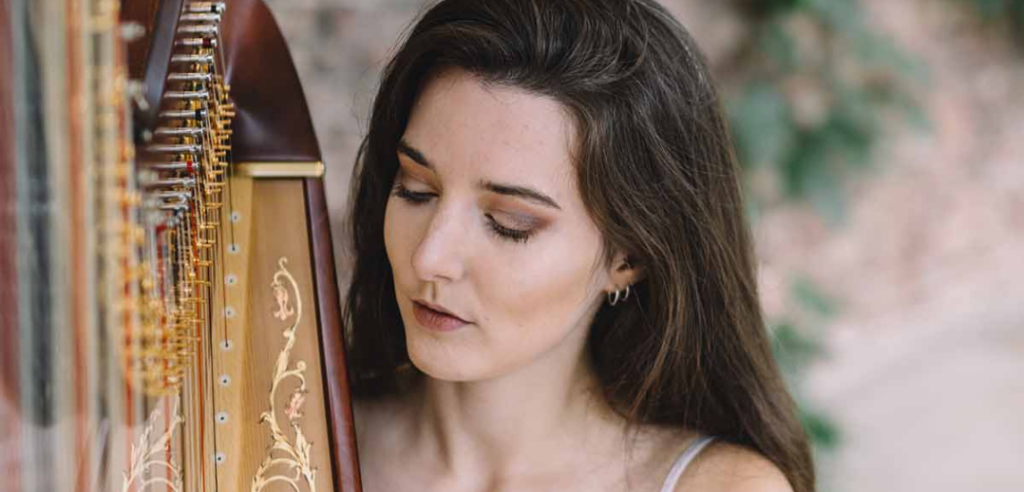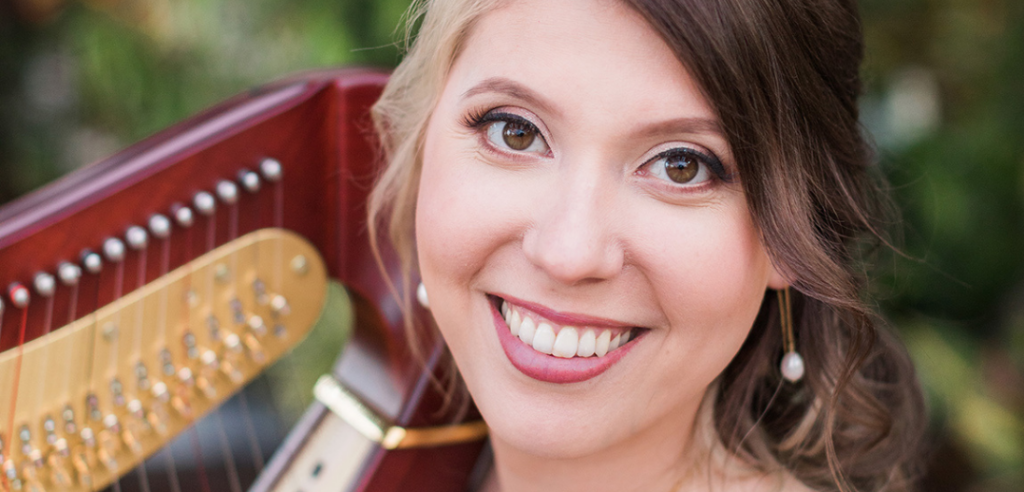In 2021 we began following nine harpists for our Practice Makes Harpist series to see how their practice affects their musical experience. In this issue we wrap up our series with two music students: Lauren Ulrich, a harp performance major at Wayne State University, and Isabella Rahme, a harpist studying music composition at Sydney Conservatorium of Music.
Lauren Ulrich
Age: 29
Education: Bachelor of Music in Harp Performance
Short-term goal: Compete in Wayne State University’s concerto competition.
Long-term goal: Graduate from school and begin freelancing full time.
Second-year Challenges
Lauren Ulrich found her second year studying harp performance the most academically difficult year of her life, including her four years in business school. During her first year, some courses repeated material she knew, so she felt confident to take on more in her second year. However, during her sophomore year, she quickly found the fall semester courses covered completely new material, leaving her scrambling to meet the demands of practice and coursework.
Thankfully, in times of extra pressure, like midterms when she had a solid week of rehearsals with orchestra, band, and chamber ensemble, her husband helped around the house. “I had a few moments when I thought, ‘there’s no way I can do all of this.’ I feel I can now find a solution to any musical problem, such as a hard passage, or balancing many pieces at a time.” In spite of her heavy school load, she managed to stick to a consistent gym schedule. For her second semester she applied what she learned and reined in her schedule, taking on a course load that she could commit to without overloading herself.
More effective practice
Ulrich’s practice habits continue to develop and change. Now she fits in extra short practices in addition to the long blocks. “Even if it’s 15 minutes between some classes or a half hour just after I come home, every little bit helps.” It’s also important to know when to stop. Ulrich tries to be in tune with herself so she can take a break and change gears when she’s not focused.
This year she built the skills to learn pieces faster. Where previously she focused on a full passage or phrase to correct a problematic measure, now she works on that measure or series of notes with laser focus. She explained, “I play it 100 times and then add the measures before and after it. I play it with different techniques such as extra slow while fully articulating the fingers.” She always tries to practice five times slowly for every time she plays it fast.
Her ear is also improving. Ulrich has learned to hear the nuances in her own playing. “I’ve been with Professor Terry-Ross for about two years. I can hear her voice in my head when I’m practicing, knowing what she would critique. When I’m playing a chord with eight of my fingers I can pick out the one finger that sounds kind of weak. Whereas before I was simply happy to play the chord in the right place.”
As time goes on, Ulrich feels she’s progressing faster. “It’s an encouraging thing to see. Some advice for anyone who’s just starting in harp, it won’t always take forever to learn a new piece.” All of Ulrich’s hundreds of hours are paying off; this summer she’ll start working on her first concerto. We wish her luck in her audition for the concerto competition.
Isabella Rahme
Age: 22
Education: Bachelor of Music in Composition at the Sydney Conservatorium of Music
Short-term goal: Practice consistently (preferably an hour per day) despite a main focus on composition.
Long-term goal: Be a well-rounded and flexible performer and develop as a composer.
Finding balance
Last year Isabella Rahme had to choose between an honors year and a senior project. Inspired by the talented student ensemble she was working with, she chose composing and arranging a senior project for the ensemble. “It was an ensemble of two clarinets, saxophone, bassoon, piano, and me. I performed a bit in a sense, doing some of the electronics and synthesis during the performance.” Working together with the ensemble she composed an original work and arranged and recomposed a series of existing classical pieces. As a group, they reworked the pieces into an hour long, continuous performance moving between each work. Rahme said, “It was ambient and minimalist inspired.”
The ensemble decided to make the experience immersive and accessible to the audience, moving away from the traditional classical concert where the audience is very separated from the performance. At the Sydney Conservatorium of Music they brought the audience on to the stage, surrounding them with speakers. “We had some drones and pre-recorded sounds. Each instrument had a microphone attached so that I could do live processing throughout the performance such as simple effects and looping.”
In addition last year, shortly after finishing a musical installation course, she was commissioned to make a sound installation. “I had four different objects that people could interact with that produced sound, it was a performance of the objects. They were just everyday objects I had: a triangle, a radio, Teddy bear, and a clock; wrapped in bubble wrap. They had mics inside to amplify the sound of the bubble wrap which triggered all these other sounds. The sounds that arose from the audience interacting with the objects were all in some way related to the objects themselves—potentially in abstract ways.”
Honors thesis
This year Rahme is completing a composition honors course, writing a thesis, and building an honors portfolio of compositions. Picking a topic took careful consideration. Rahme said, “I needed something I would be interested in looking at for a whole year. I’m not studying performance, but it’s still obviously part of my practice as a musician. I really enjoyed writing an essay about the development of the double action pedal harp, how that influenced compositions and performance practice.” She decided to focus on the development of electric harps, examining what music has been made with them since they’ve been developed and what new sorts of possibilities people are exploring.
After graduation Rahme hopes to continue working on her own electric harp and voice compositions. “Maybe I’ll release an EP or an album, after I’ve worked for a bit longer.” We’ll keep an eye out for her compositions and album. •




